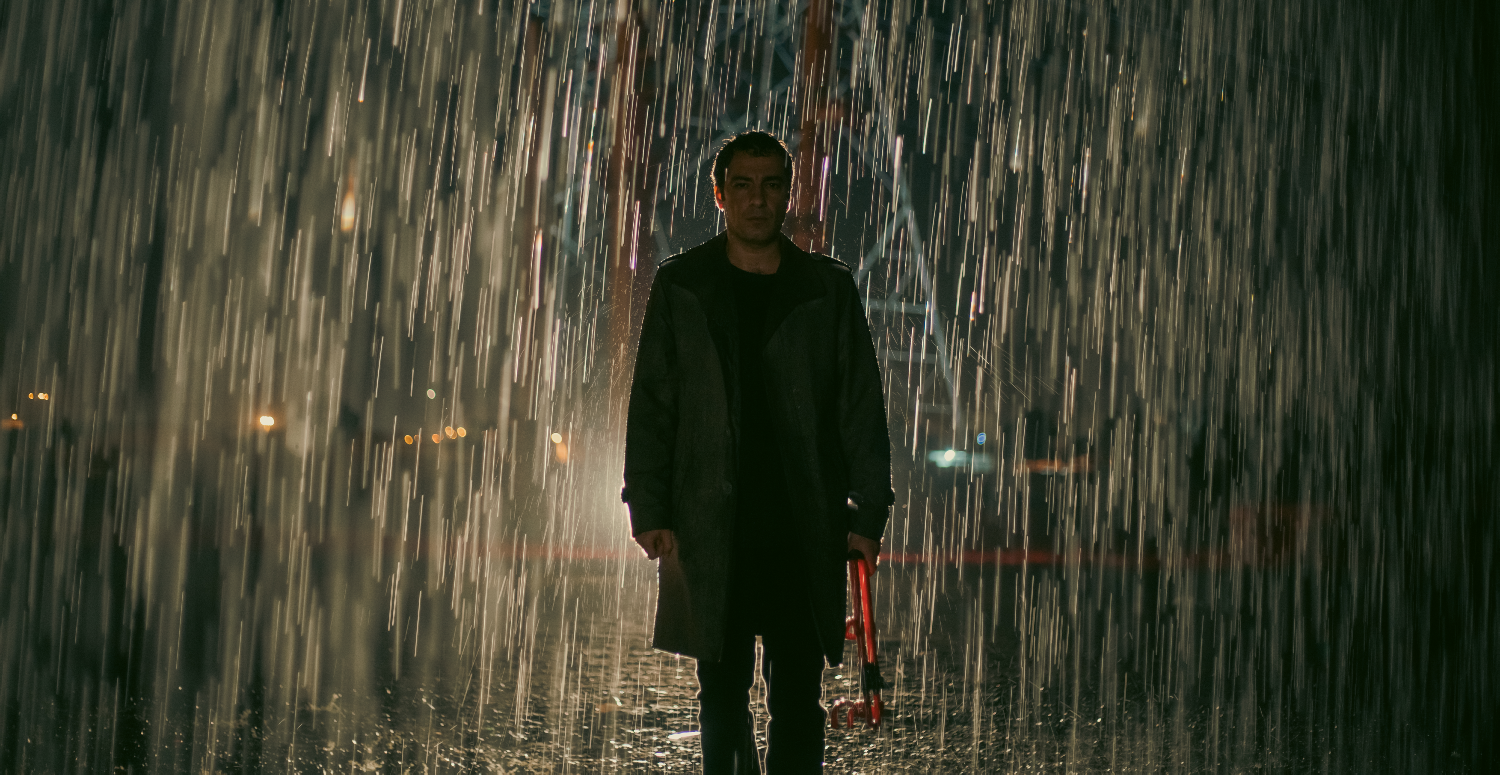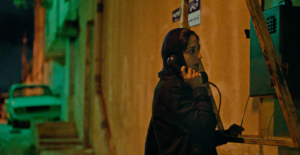Les Ombres Persanes
تفریق – Tafrigh (Subtraction)
2022/2023

FR EN
Dans un cinéma iranien où, sous l’influence d’Asghar Farhadi, domine le réalisme social, Mani Haghighi signe un thriller réaliste à la frontière du fantastique qui réussit le tour de force de nous faire accepter un postulat de départ plus qu’improbable lorsqu’un homme et une femme découvrent par hasard qu’un autre couple leur ressemble trait pour trait.
Les révélations arrivant assez tôt dans l’intrigue, « Les Ombres Persanes » bascule rapidement du thriller à l’étude de personnages avec quatre destins distincts et un développement des personnages et de l’intrigue très réussis. Ce jeu de double et de miroir interroge le spectateur sur ce qu’il voit et brouille la frontière du couple mêlant ainsi les destins de deux familles bien différentes. Le charme du film doit alors beaucoup à l’interprétation à la fois subtile et intense de l’excellent duo d’acteurs Taraneh Alidoosti (Leila et ses Frères ; Le Client) et Navid Mohammadzadeh (La Loi de Téhéran ; Leila et ses Frères) qui joue chacun un double rôle et réussit brillamment à les différencier suffisamment pour ne pas perdre le spectateur. La réalisation très soignée nous plonge de plus dans un Téhéran nocturne sous une pluie de doute constante, un déluge omniprésent tel un environnement à la Kurosawa, qui donne à l’intrigue une atmosphère moite et glaçante renforcée par la magnifique photographie tout en clair-obscur de Mortez Najafi.
Si le thème du double est récurrent au cinéma, il ne l’est pas sous l’angle social comme le fait ce film iranien qui interroge ainsi les entraves aux singularités et montre par son sous-texte de forts contrastes entre les deux foyers notamment sur les rôles assignés à l’homme et à la femme. L’improbabilité de son point de départ évoque une sensation que connaissent de nombreux Iraniens : devoir accepter et vivre dans une situation qui sort de la normale. Il n’y a plus de situation ordinaire dans le pays d’où ce parti pris presque fantastique dans un film réaliste. A travers cette sombre gémellité, le scénario de Mani Haghighi – coécrit avec le dramaturge Amir Reza Koohestani – dépeint donc un vrai tableau des désillusions de leur pays et subvertit son intrigue réaliste.
Among the Iranian cinema where social realism prevails under the influence of Asghar Farhadi, Mani Haghighi crafts a realistic thriller bordering on the supernatural, which succeeds in making us accept a more than unlikely premise when a man and a woman discover by accident another couple who look just like them.
With revelations coming fairly early in the plot, “Subtraction” quickly shifts from thriller to character study, with four distinct fates and a highly successful development of character and storyline. This interplay of pairs and mirrors questions the audience about what they see, and blurs the boundaries of the couple, blending the fates of two very different families. The film’s appeal is largely driven by the subtle yet intense performances of the excellent acting duo of Taraneh Alidoosti (Leila’s Brothers; The Salesman) and Navid Mohammadzadeh (Law of Tehran; Leila’s Brothers), each of whom plays a double role and manages to differentiate them well enough to avoid confusion. The film’s meticulous direction also immerses us in a nocturnal Tehran under a constant rain of doubt, an ever-present deluge akin to a Kurosawa setting, giving the plot a clammy, ominous atmosphere enhanced by Mortez Najafi’s gorgeous chiaroscuro cinematography.
While the theme of doubles is quite common in cinema, it isn’t explored from a social perspective, as in this Iranian movie, which questions the constraints on singularity and, through its subtext, reveals stark contrasts between the two households, particularly as regards to gender roles. The unlikelihood of its premise suggests a familiar feeling for many Iranians: having to accept and live in a situation beyond normalcy. There are no longer any ordinary situations in the country, hence this almost fantasy-like twist on a realistic film. Through this dark twinship, Mani Haghighi’s screenplay – co-written with playwright Amir Reza Koohestani – therefore depicts a vivid picture of their country’s disillusionment and subverts its realistic plot.

